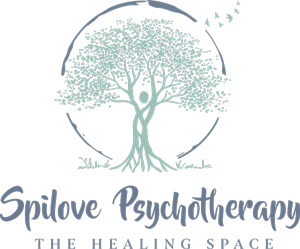While families have traditionally been seen as sources of support and nurturance, they can also pass down deep-rooted wounds from generation to generation. Known as intergenerational trauma, this phenomenon casts a long shadow over family dynamics and shapes how individuals perceive and engage with the world.
Mindfulness Exercises for Anxiety, Depression and Trauma
Studies show that mindful activities scattered throughout one’s day can have an even deeper impact on healing and self-growth than a regular sitting meditation practice. This is because, once a mindful approach is embedded into our regular activities, it is more likely to become our go-to approach to life. We can take meditation off the cushion, so to speak, and into our daily lives. We can start to incorporate mindfulness into our days by learning ways to reach stillness other than traditional meditation. Here are some other ways to achieve a mindful state in your day to day life…
Celebrating Mental Health Awareness Month
Just because you are struggling with your mental health, doesn’t mean you aren’t deserving of love, support, or connection. Nor does it mean you have been less value. And that specifically is also what this year’s Mental Health Awareness Month 2023 focuses on! The year’s Mental Health Awareness Month focuses on #MoreThanEnough.
What Is Trauma? How Can I Cope With My Own Trauma?
Trauma itself is highly personal. What one person views as trauma, another might not (and vice versa) or you might have had a similar experience as someone else, but each of you were affected differently. What we know for certain is that while trauma affects all of us differently, experiencing something that is stressful, frightening, or distressing leaves us all with a deep long-lasting wound. So, what can you do to cope with trauma? You might be wondering.
Finding Empowerment After Trauma
Trauma impacts each of us differently, but, on the whole, we often all experience a shift afterwards. We feel helpless, fearful, sad, and maybe even numb. These post-trauma responses make us feel isolated and withdrawn from the world around us and we often feel so disconnected from our old self. We feel like we have lost integral parts of ourselves forever. But, you don’t have to lose yourself or experience the ripple effects of trauma forever. There are ways to empower yourself after trauma!
What the Heck is EMDR? And What Does it Feel Like?
Now you may have engaged in talk therapy before (or maybe not!) and while it may have been helpful, it never felt like you got to the root of your trauma or problem. It felt like you just talked and talked and (surprise!) talked about your trauma narrative. And while it felt somewhat helpful in the moment, you never felt free from the traumatic memories or sensations because challenging the thoughts or beliefs you had about the trauma just wasn’t enough. Sounding familiar at all? This is where EMDR is different.












